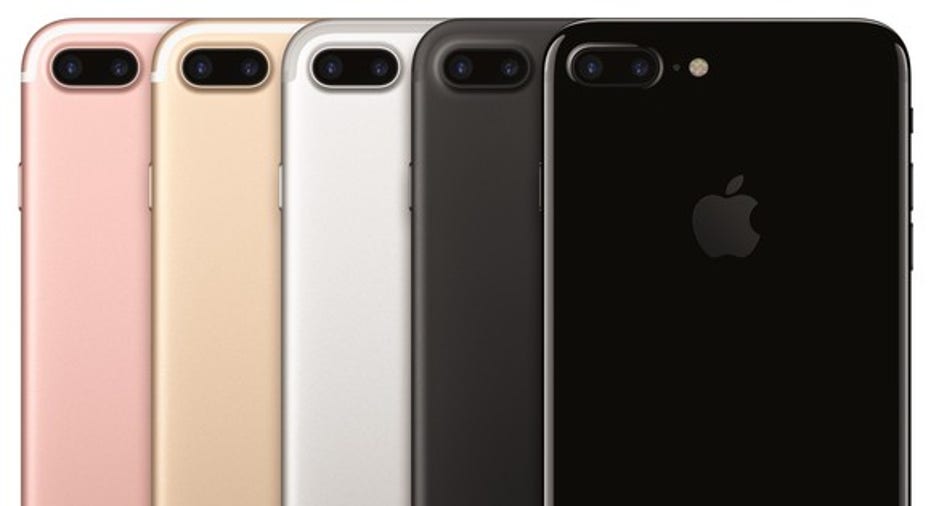Taiwan Semiconductor Reported to Start Building Apple A11 Processor in April

Analysts with BlueFin Research Partnerssay that Taiwan Semiconductor Manufacturing Company (NYSE: TSM) will begin manufacturing Apple's (NASDAQ: AAPL) A11 processor in late April(viaBarron's). The A11, BlueFin says, will be manufactured in TSMC's 10-nanometer manufacturing technology.
Interestingly, BlueFin says -- as is widely expected -- that Apple's A11 chip won't be the first processor to ramp into production on TSMC's 10-nanometer technology in 2017. The A10X that will power next-generation iPad models, as well as MediaTek's upcoming Helio X30 mobile applications processor, should ramp up before the A11 does, BlueFin's commentary suggests.
"This may be fortuitous for [TSMC] given that yields are well below 50% presently, according to our research," the analysts write.
In this article, I'd like to go over why, if the reported yield rate is correct, this is, in fact, "fortuitous" for TSMC.
Image source: Apple.
Understanding semiconductor manufacturing economics
When a chipmaker builds a wafer of chips, there will inevitably be chips that come off the wafer either totally broken or simply without meeting performance or power specifications. The percentage of usable chips of all the chips produced from a given wafer is known as the manufacturing yield rate.
Since it costs a fixed amount to produce a finished wafer of chips, the effective manufacturing cost of a chip is directly related to the number of chips that come off a wafer. So, for a given chip design, a lower yield rate means more expensive chips, while a higher yield rate means cheaper chips.
So, what does this have to do with TSMC? Well, TSMC generally sells wafers rather than individual chips to its customers, but if yields are as bad as they sound right now (sub-50% is really bad), then it's likely that any potential customers aren't going to be willing to pay as much per wafer as they would if a higher percentage of the chips worked.
Lower revenue per wafer, if wafer costs are fixed, translates into relatively low gross profit margins on those wafer sales.
A10X and Helio X30 are small potatoes; A11 requires tons of volume
The first TSMC 10-nanometer products should be the Apple A10X and the Helio X30, both of which should be low-volume products compared with the A11. This suggests that the early 10-nanometer shipment volumes for TSMC should be relatively modest and comprise a small portion of its overall revenue until the A11 chips start to ship in significant quantities.
What this means is that TSMC can deal with reduced margins on those early 10-nanometer wafer shipments without diluting its overall gross profit margins too much.
However, when it comes time to start mass-producing the A11 and shipping those wafers to Apple in the large quantities required to support the iPhone 8, the yield rate is going to need to come up substantially for TSMC to be able to both enjoy strong margins on those products and simply meet Apple's demand.
Remember, if yield rates are low, then the effective number of chips that a chipmaker can produce on that low-yielding technology is reduced for a fixed amount of capacity (and capacity can't be put in place overnight).
Not being able to meet Apple's unit demands would be a negative for TSMC, as it might drive Apple to be more aggressive about trying to find a second source for future chips (as it did with the A9 chip, which was manufactured by both TSMC and its rivalSamsung (NASDAQOTH: SSNLF)).
It'd also be a negative for Apple, as a chip-related supply bottleneck would reduce the number of iPhone 8 models that it'd be able to ship during the all-important holiday season.
10 stocks we like better than Apple When investing geniuses David and Tom Gardner have a stock tip, it can pay to listen. After all, the newsletter they have run for over a decade, Motley Fool Stock Advisor, has tripled the market.*
David and Tom just revealed what they believe are the 10 best stocks for investors to buy right now and Apple wasn't one of them! That's right -- they think these 10 stocks are even better buys.
Click here to learn about these picks!
*Stock Advisor returns as of Nov. 7, 2016
Ashraf Eassa has no position in any stocks mentioned. The Motley Fool owns shares of and recommends Apple. The Motley Fool has the following options: long January 2018 $90 calls on Apple and short January 2018 $95 calls on Apple. Try any of our Foolish newsletter services free for 30 days. We Fools may not all hold the same opinions, but we all believe that considering a diverse range of insights makes us better investors. The Motley Fool has a disclosure policy.



















